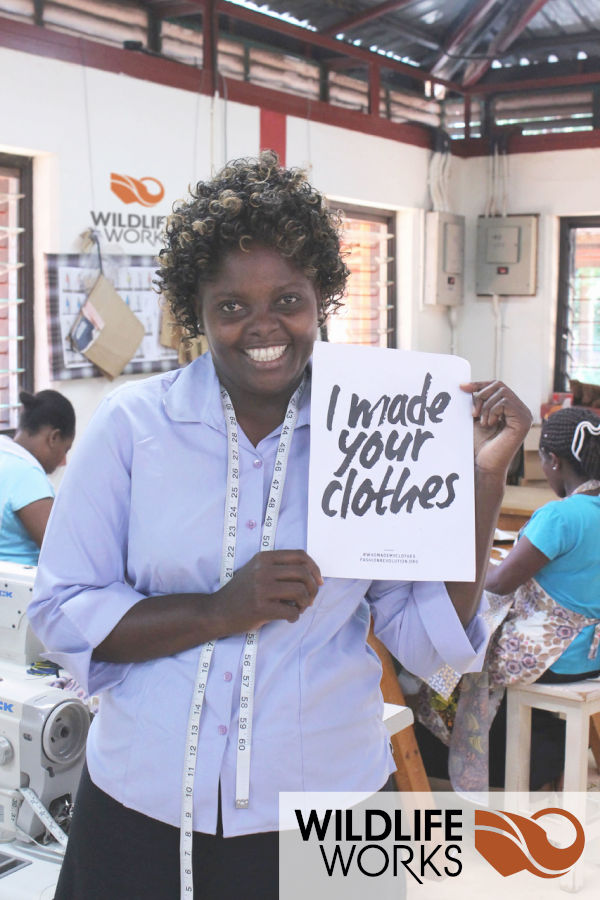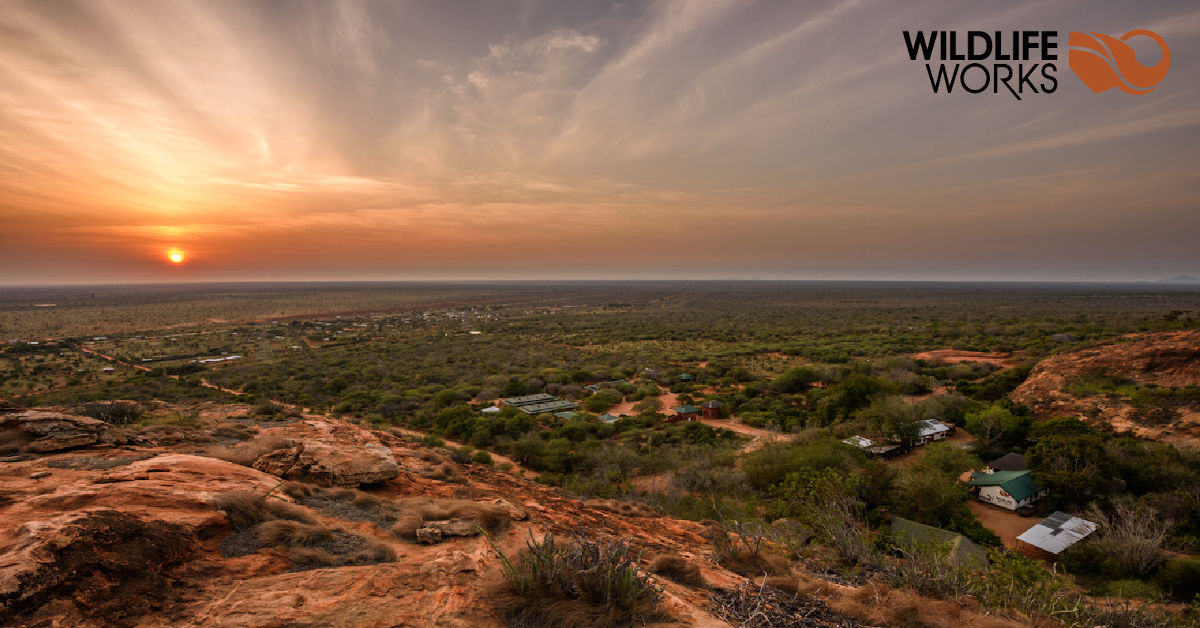The Eco-factory With Conservation And Community At Its Heart
Who made your clothes? Do you know where they came from? It’s not the first thing that most of us think of when picking up a t-shirt, but our shopping choices are becoming increasingly important. There are a lot of questions circulating about the fashion industry at present, two front-runners being about ethical manufacture and sustainability. With the fashion industry identified as probably the second biggest polluter in the world, it is heartening now to see glimmers of change in the form of eco-friendly and ethically-minded fashion brands growing in reach.
Wildlife Works is a leading REDD (Reducing Emissions from Deforestation and Degradation) programme development and management company, running multiple projects close to our own heart. The Wildlife Works Kenyan apparel factory advocates wildlife conservation and community connection. Situated on the edge of Rukinga Wildlife Sanctuary in Kenya, the eco-factory has brought enormous benefits to the locals, not just the people, but the wildlife and lands as well. Their passion for community connection makes them a leading example amongst fashion manufacturers, believing in giving back to their employees, not just taking. Creating close and mutually beneficial relationships with the surrounding communities is crucial to them and a trait rarely seen across the wider manufacturing industry.

The project employs over 300 local people, including rangers, seamstresses and greenhouse workers, in an area that was previously rife with poaching as a means of food income. With the resulting improvement in financial security, poaching rates are much lower and the communities are able to respect and care for the wildlife around them.
Over 75 of these workers are employed in the on-site eco-factory, to create their organic fashion label as well as manufacturing for other brands, with shared values, worldwide . [1]
Wildlife Works’ positive impact mission means that they ensure their actions do not degrade the area in any way, and the fair-trade factory operates to a high quality standard. They call it ‘Consumer Powered Conservation’, because when you purchase one of their garments, you become not only a wearer but also an ambassador for conservation and the sustainability that the brand facilitates. This is an ethos well worth embracing: as Professor of Fashion Design For Sustainability, Dilys Williams said, ‘What we stand up in, should reflect what we stand up for’, [2] and what could be more true, for as consumers it is us that have the buying power to drive how the fashion industry evolves.
In the face of the vast amount of pollution and wastage that afflicts our planet, it is easy to feel that our choices have no impact and, whilst fashion brands with an eco-friendly ethos are out there, there is still a long way to go before sustainability becomes a mainstream practice. However, the fashion industry operates, as any other, on a supply and demand process – as demand emerges, the industry reacts to meet it. Therefore, you do make an impact on what retailers continue to provide every time you make a purchase – you vote with your wallet, your choices indicate the type of product you want to see and ultimately, how the industry will be shaped.

To see more from this amazing project take a look at their website https://www.factory.wildlifeworks.com/ and be sure to check out their own blog for more stories and recommendations.
Here at The Word Forest Organisation our own venture into sustainable fashion has only just begun, but we’re glad to see inspiring stories from across the fashion industry and can’t wait to see where our journey will take us! Take a look at our online shop to see what’s new.
References
1. https://www.factory.wildlifeworks.com
2. https://sustainable-fashion.com/blog/strengthening-sustainability-literacy-the-sustainable-fashion-glossary/



